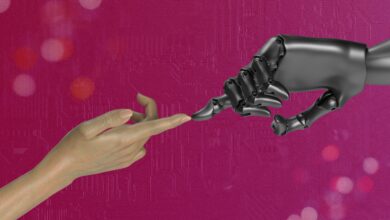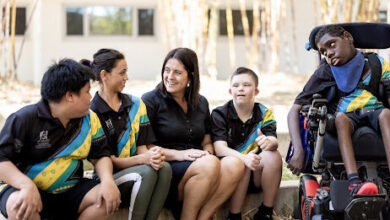Computer science has taken off as a subject: here’s how schools can improve, according to a teacher, a student, & a tech company founder
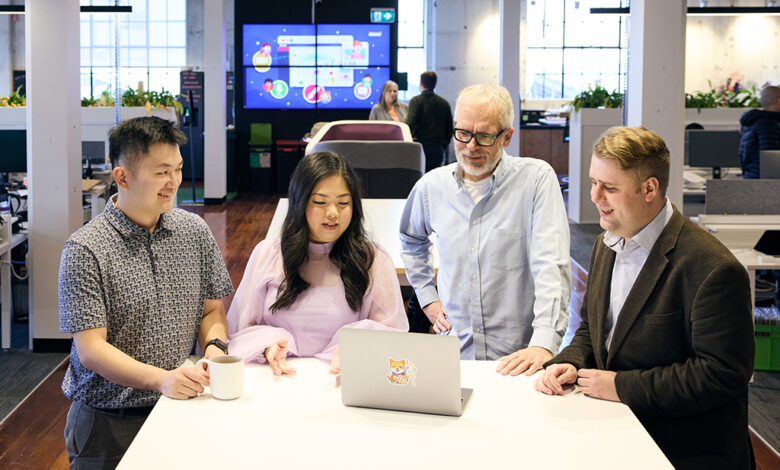
Computing by way of accounting, law, and astrophysics? That was the career path of Andries Van Tonder, the senior computer science teacher at ACG Parnell College who, after he fell in love with programming, has guided numerous Cambridge International students to A* and A grades, including Jenna Parkin who won two Top in the World Awards for Computer Science and has since been accepted into the University of Cambridge.
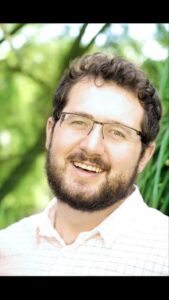 Andries’ mid-career switch to becoming an IT educator happened to align with his own fascination with automation as the future of most jobs – but it also meets a growth trend. As companies like Rocket Lab put Aotearoa on the world map, technology has risen to be New Zealand’s fastest-growing industry, with 2,000 new jobs created annually and new IT occupations emerging all the time. The median base salary of an IT role is $100,000 compared with the national median of $58,000.
Andries’ mid-career switch to becoming an IT educator happened to align with his own fascination with automation as the future of most jobs – but it also meets a growth trend. As companies like Rocket Lab put Aotearoa on the world map, technology has risen to be New Zealand’s fastest-growing industry, with 2,000 new jobs created annually and new IT occupations emerging all the time. The median base salary of an IT role is $100,000 compared with the national median of $58,000.
To take advantage of these economic opportunities while deepening the talent pool and encouraging more diversity in the tech industry, programmes such as Sisters in Tech, a partnership with NZ Tech and the Ministry of Social Development, have launched to welcome Māori and Pasifika wāhine into the sector to help solve its diversity issue.
Two things are clear: a) computing knowledge opens up broad and deep opportunities for learners, both inside and outside computing careers, and b) you’re never too young to start learning.
As the curriculum coordinator at ACG Parnell College, Andries is responsible for the application of Cambridge International’s new Computing curricula in 2022.
With digital tools so much a part of our lives, including how we learn and develop new skills, Computing for Cambridge Primary and Lower Secondary complements the Digital Literacy curricula and has five content strands: computational thinking, programming, managing data, networks and digital communications, and computer systems.
Andries came to programming relatively late at university and he advocates for an early introduction to computing, focusing on the creativity and experimentation it affords:
We turn it into play, make it a normality, and you learn as much as possible.
The students do a project where they have to prove everything they’ve learned over the year – like build a little robot or make a game that uses microbits, and they get evaluated.
A group showed me how they tried to build a quadcoptor. We marked their grades based on how much effort and resources they had put in and how they showed what they learned.
“In the middle school programme we make it as physical as possible – we don’t want it to be too focused on software and screens because it is still school and children.
We get physical objects to work with and programme, like getting a car to move, or a robot to say some words, or the lights to come on.
In terms of learning about computing, Andries’ view is “the earlier you start the better, I think”.
When you’re young, your brain is very malleable and absorbs everything.
The younger generation has always been very capable and they don’t worry about learning new technologies and using new devices because they can adapt and learn.
So it’s all about exposure and making it fun.
Perhaps the biggest news is that despite the growth of the tech industry, most people – at any age – don’t study computer science with a mind to becoming a computer scientist but to develop the skills that can feed a multitude of careers.
A graphic artist or mathematician can study computing to apply their skills to gaming or automation, for instance, and Andries points out that computing is a broad church even at university level.
“As it is, most universities don’t require you to have computer science [as a prerequisite]. You can actually go and study a computer science degree just if you have high marks in mathematics, and if you want to get into the engineering part of computer science, they like physics.
Even if you study computer science at school and then you become something else, like a doctor or a scientist in another area, you will use all the skills you learned.
“We learn a lot about programming, data science, and algorithms, and these days everything is done algorithmically. That will be to your advantage – you can optimise your life.”
With ICT growing at such a rate that there are acute skills shortages in many digital sub-sectors, Andries is acutely aware of the need to make computer science a subject that works better for female students.
We have fewer female students in senior school, when it becomes a chosen subject – so it is all about building that interest in middle school so they take it further.
We make middle school computer science mandatory for one period a week, and there are no tests or exams for it.
Generally speaking, Andries finds computer science attracts bright students, but he describes Brian Zhao, who placed second in the 2021 New Zealand programming contest and competed via Zoom in the 2021 International Mathematical Olympiad, as “on a different level. He got Top in New Zealand in IGCSE and he excels in other subjects as well.”
For his part, Brian says he is drawn to the fun of it:
“We are living in a digital age and everything is related to computer science. It’s useful in real life and it has a lot of career opportunities – anything STEM-related requires some use of computers. But personally I take computer science because it’s fun.”
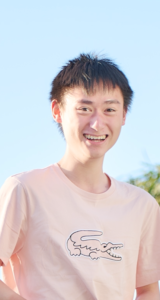
Brian plans to pursue a degree in computer science and/or mathematics and then, with the right idea to build on, start his own company.
The latter is the path taken by Jordan Thoms, a Cambridge International alumnus who co-founded app-based Kami (‘paper’ in Japanese) while at university, a digital classroom platform that allows teachers and students to interact with and collaborate on documents and learning resources, both within the classroom or remotely.
Last year Jordan and his co-founders, gave all (at the time) 53 employees a $10,000 bonus when Kami was named number one in the 2021 Deloitte Fast 50 index based on 1,177 percent revenue growth over three years. Today more than 34 million educators and students globally use Kami.
Before Jordan studied Cambridge International at Senior College he was self-taught, “playing with computers and stuff by [age] 10. I enjoyed trying to build things and solve different problems with technology. It was relatively simple, like building a website for someone, but the scope got bigger over time.
One of my parents’ tenants was a laser-cutting sheet metal company, and they needed a system to improve the way they quoted jobs.
I was about 14 and I built them a new system for that, which I worked on for a couple of years. It was neat to try and figure out the requirements and build something that ended up getting used every day.
On another occasion, when Jordan was at school, his teacher talked about the concept of an infinite series to estimate pi and it occurred to Jordan that he could write a program to do that.
He came in the next day with a computerised working model. Jordan started Cambridge IGCSE at 14, completed his Cambridge International education early and went to university at 16; the genesis of Kami came when he and co-founder Hengjie Wang went to San Francisco together on tech start-up internships and realised they weren’t happy with any of the software tools they had used to annotate the materials they were given by professors.
On the question of Industry 4.0 and bringing new talent into the ICT sector, Jordan’s view is that computer science should be a core subject at school, akin to mathematics:
It needs to be taught as a serious subject by people who have skills in that area.
It’s about teaching how to build software. Because of all the tools that are available, if you give kids the initial push and show them what’s possible, they can do so much of it themselves.
By the time they get to university, they can be so far ahead of the game.
Kami has contributed to a local programme to distribute laptops and devices to low-income households around New Zealand, which Jordan says is necessary to make computer science more accessible:
You do need to have a computer and the basics of internet access. But aside from that, people just need to have the exposure – like I did.
Exposure to people who could point me in some of the right directions and realise what’s possible. Fundamentally, building software is creative.
We’re constantly coming up with creative solutions to problems and asking, ‘how can we make this teacher’s day more efficient?’ ‘How can we help them teach a little bit better?’
To return to ACG Parnell College, the data is showing computer science has taken off as a subject.
When Andries started at the school in 2020 there was one Cambridge IGCSE class, and now there are two. And he isn’t shy about reminding students of how far tech can take them – if they apply themselves:
I always bring up Rocket Lab to students, they’re doing amazing things. And Rocket Lab programmes in Python, which is one of the main things I teach.
So I reinforce that. ‘You want to work at Rocket Lab, here in New Zealand? Pay attention, learn your Python.’


